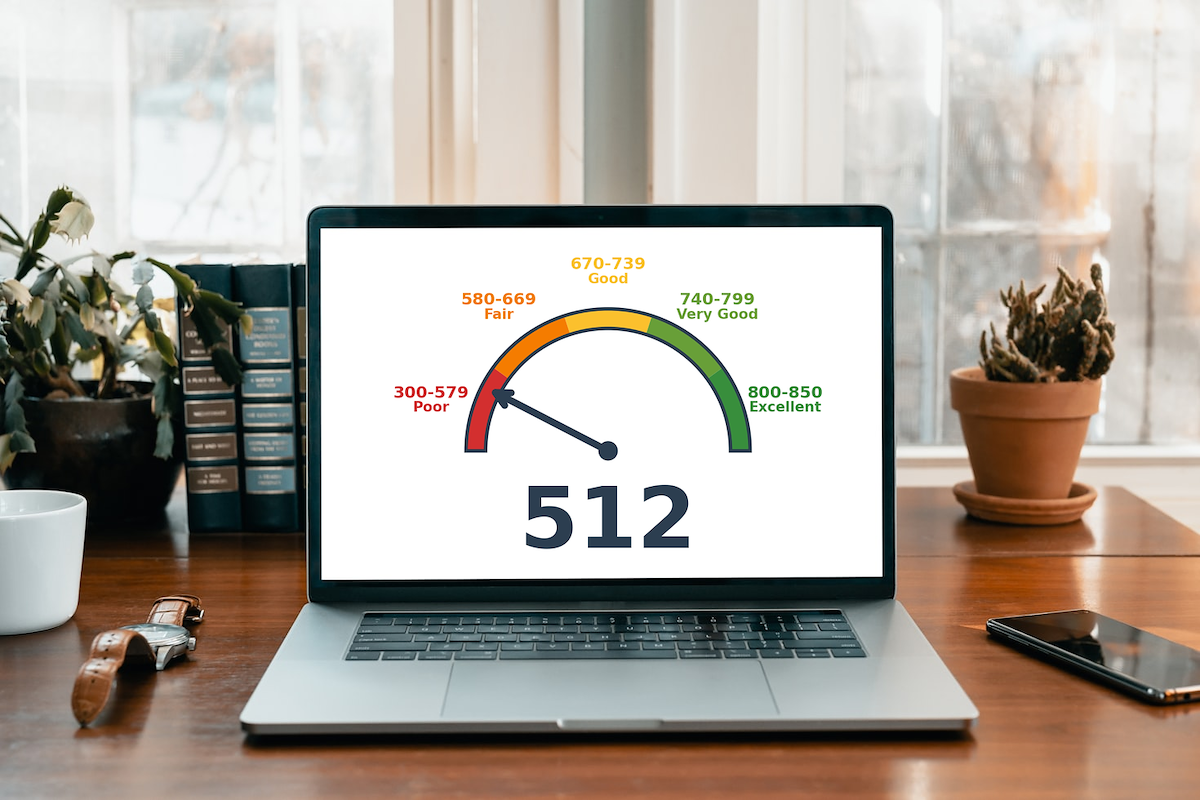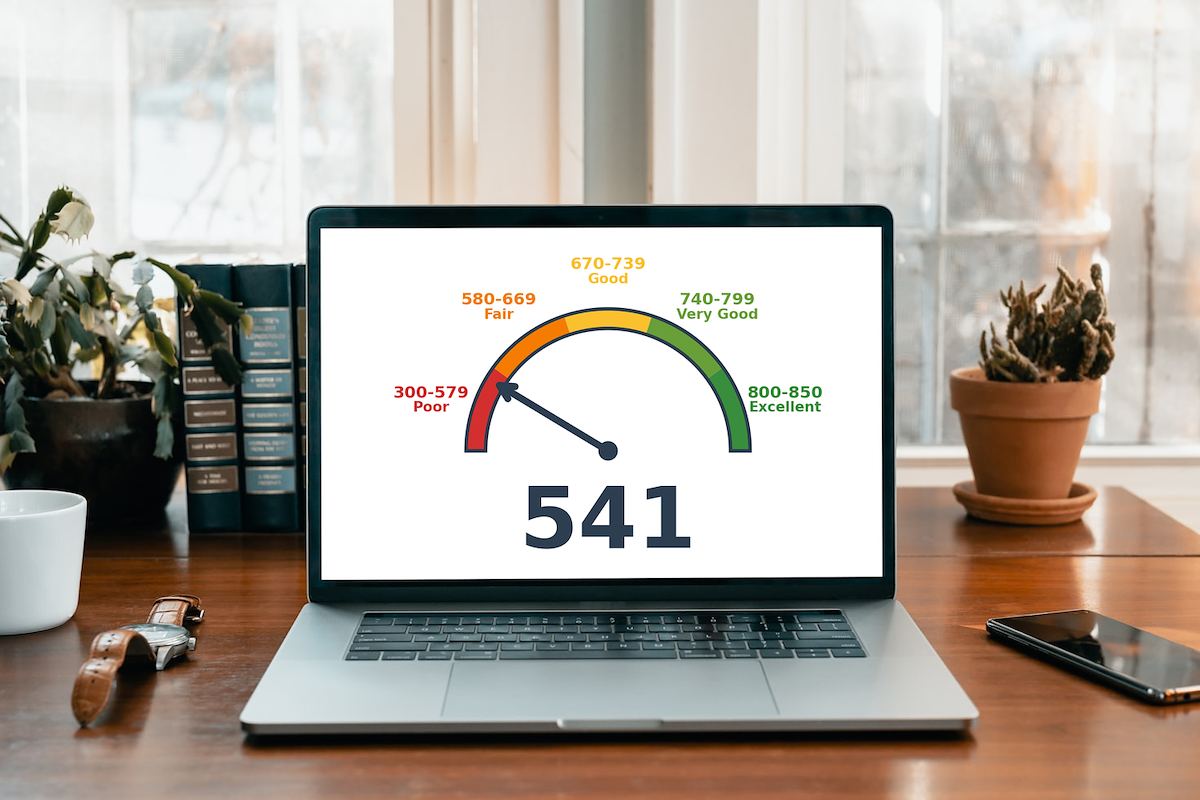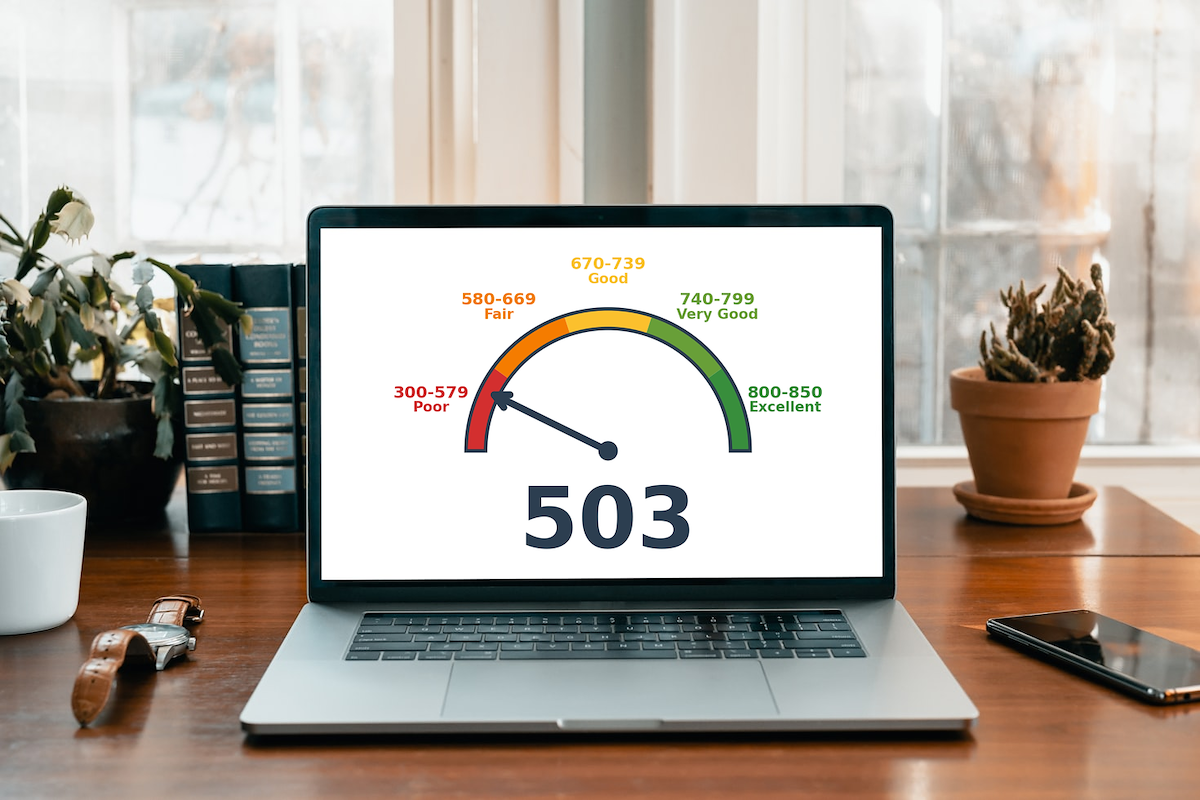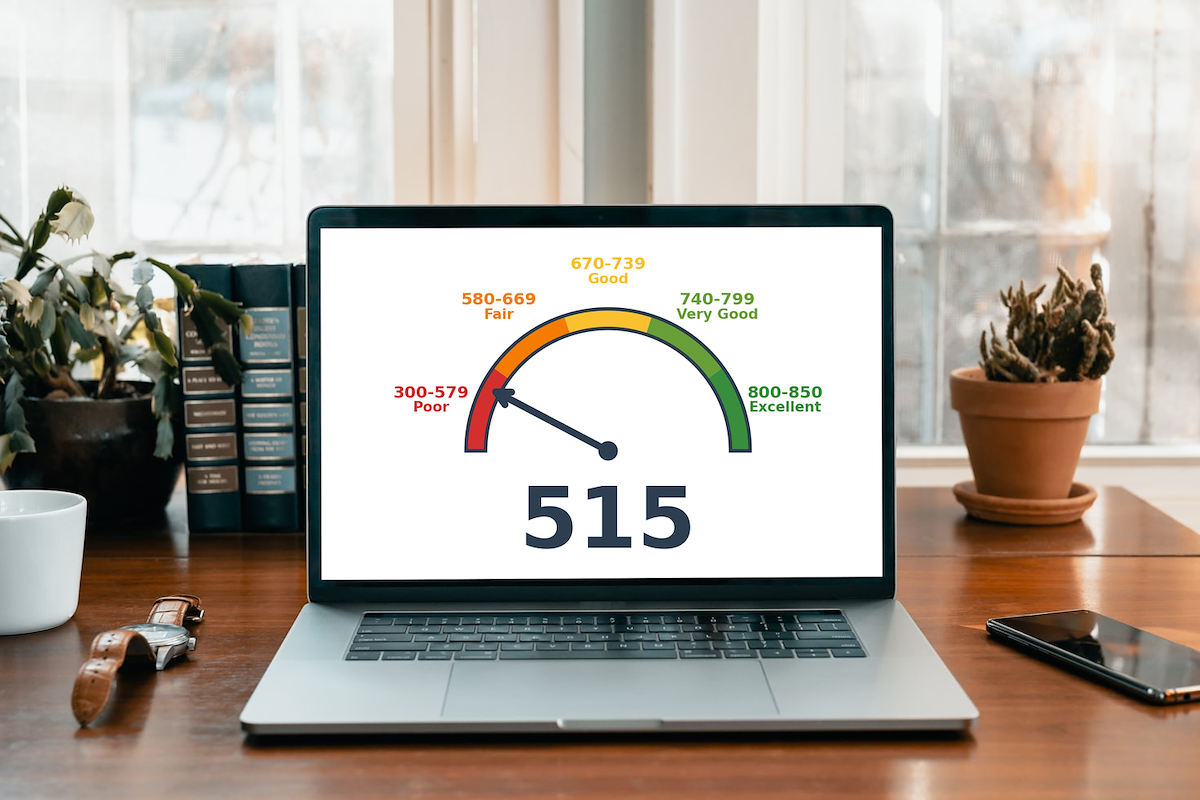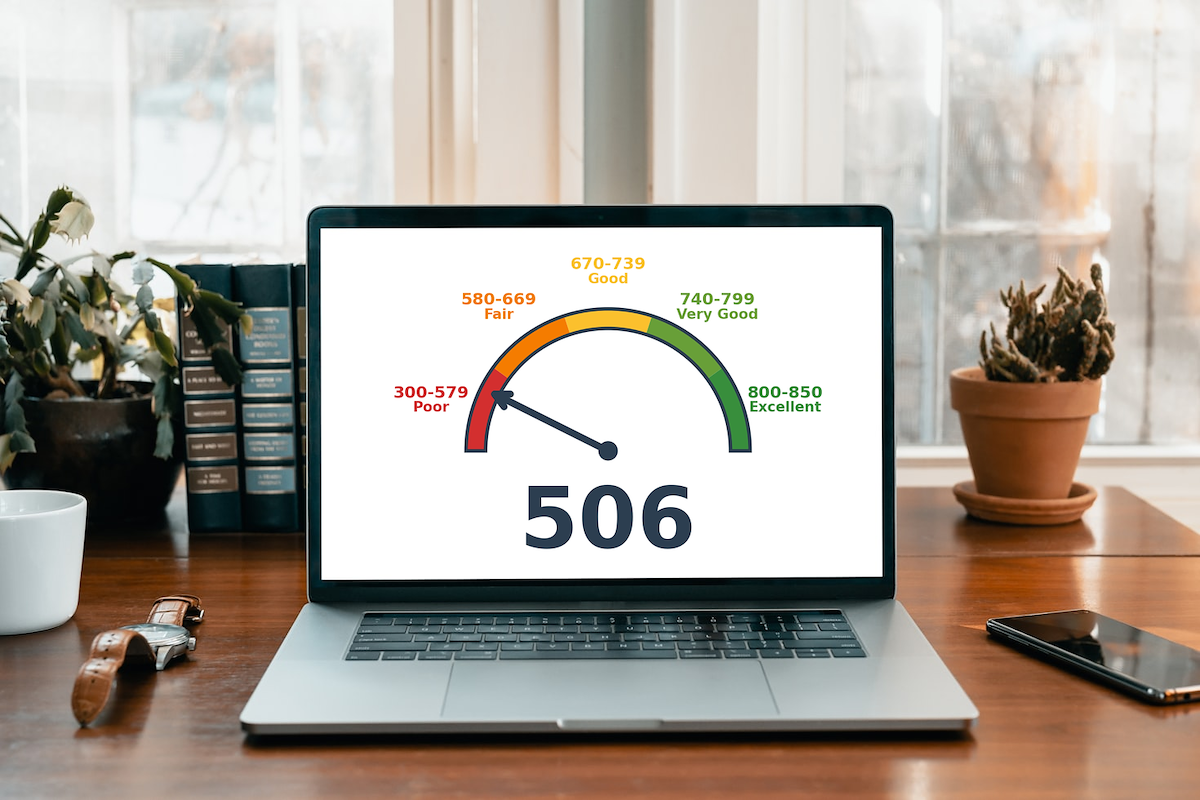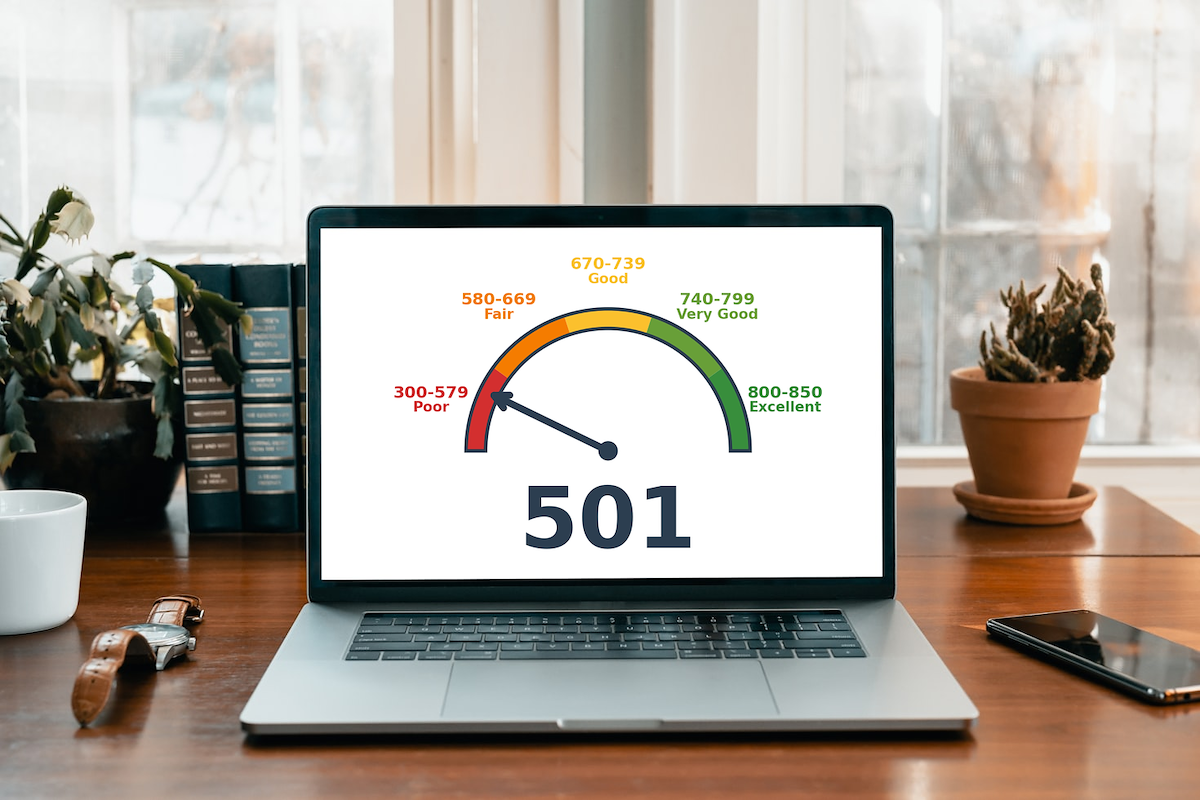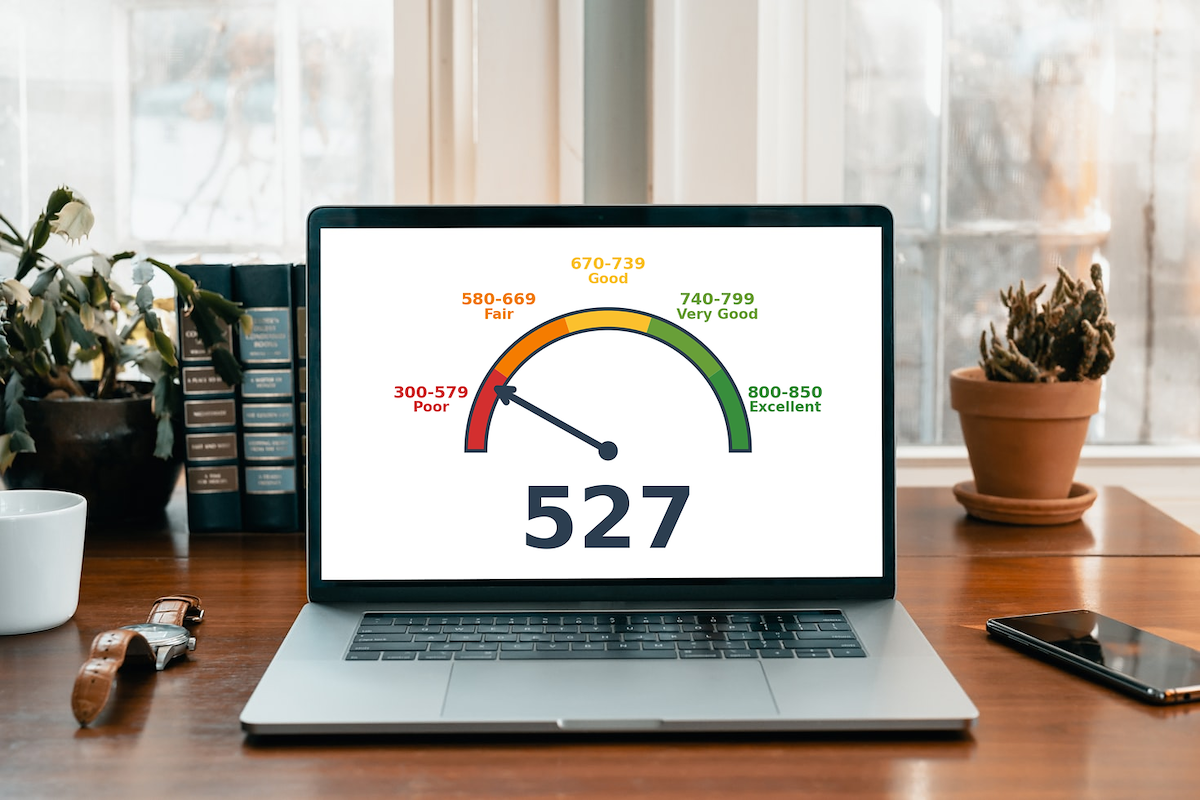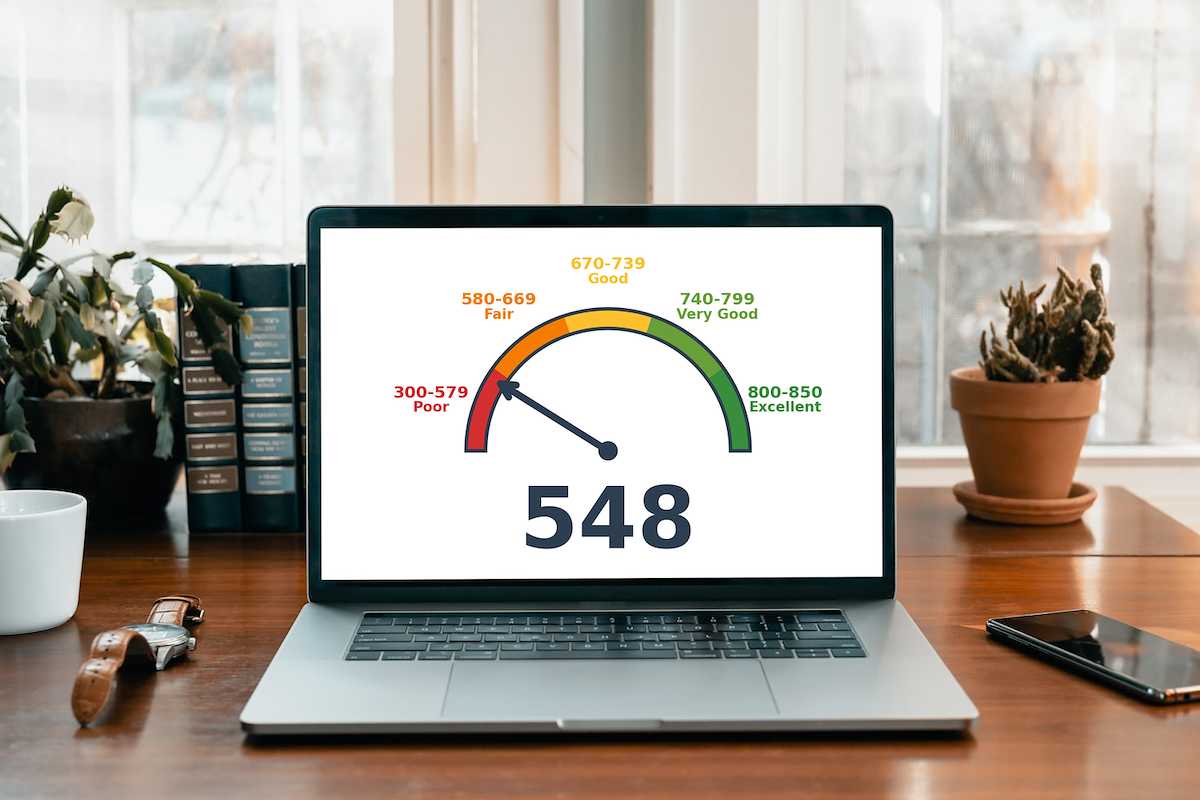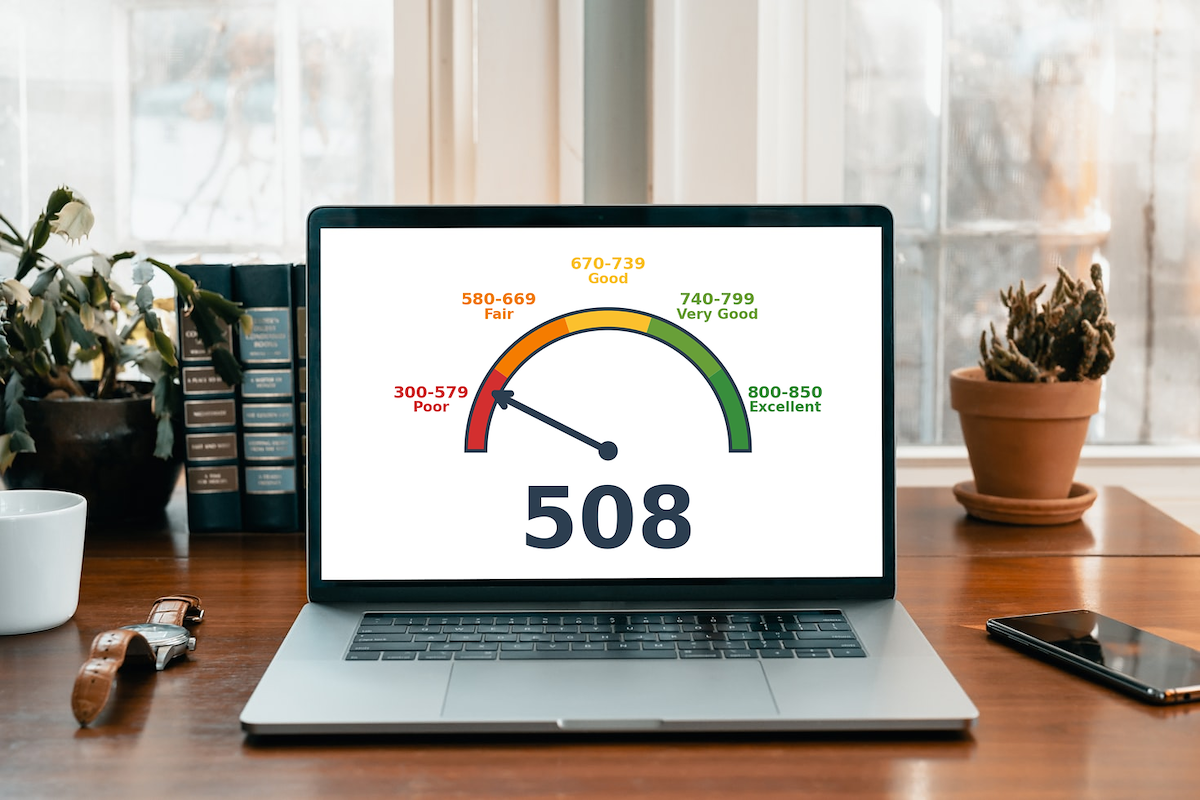
Kudos has partnered with CardRatings and Red Ventures for our coverage of credit card products. Kudos, CardRatings, and Red Ventures may receive a commission from card issuers. Kudos may receive commission from card issuers. Some of the card offers that appear on Kudos are from advertisers and may impact how and where card products appear on the site. Kudos tries to include as many card companies and offers as we are aware of, including offers from issuers that don't pay us, but we may not cover all card companies or all available card offers. You don't have to use our links, but we're grateful when you do!
544 Credit score: What You Need to Know in 2025
July 1, 2025

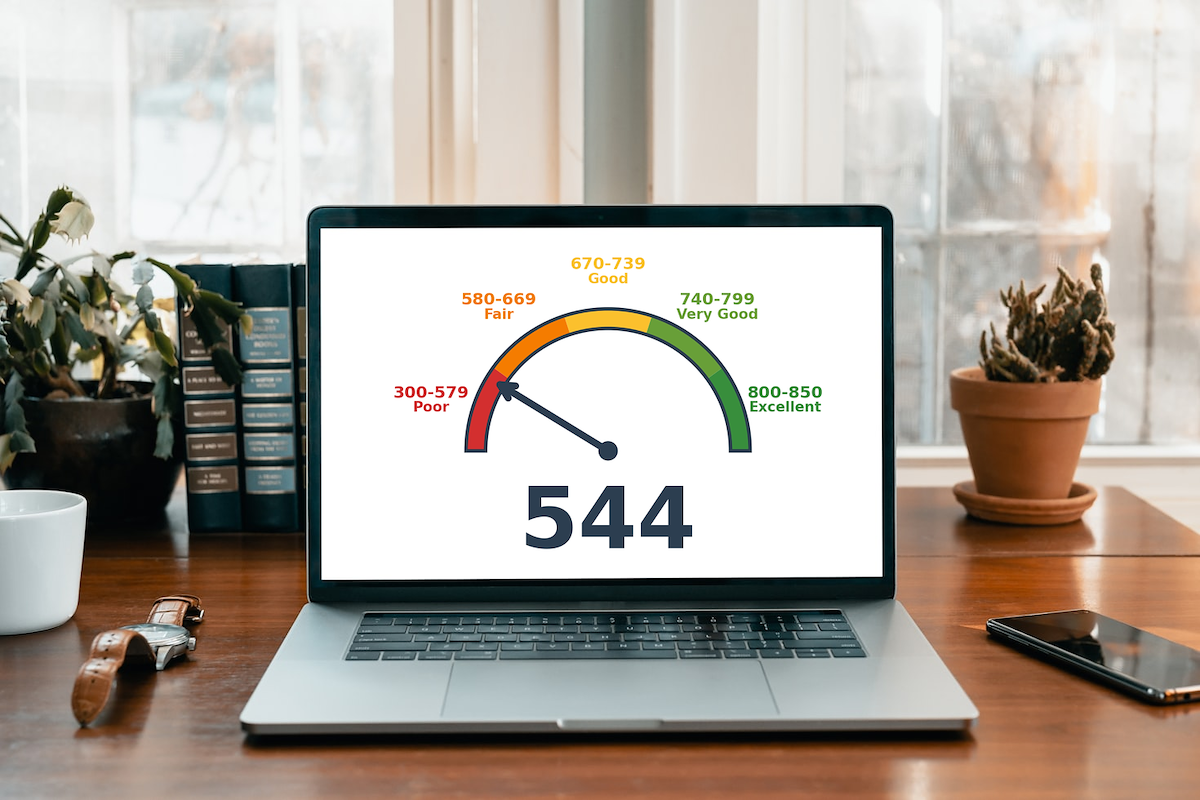
TL;DR
A 544 credit score presents some challenges, but it provides a clear baseline from which to improve your financial standing. This score falls into the 'Poor' category on the FICO scale, signaling a significant opportunity for growth.
What Does a 544 Credit Score Mean?
A FICO score of 544 falls squarely in the "poor" credit range, which spans from 300 to 579. Lenders view this as a sign of a high-risk borrower, creating significant financial hurdles. You may struggle to get approved for new credit, like loans or credit cards. Any offers you do receive will likely include higher interest rates and less favorable terms, making borrowing more costly.
However, a credit score is not a permanent brand. It’s simply a snapshot in time, and a 544 score can be the starting point for building a stronger financial future. While it reflects past difficulties, it also presents an opportunity for growth. It is possible to improve your standing with lenders and unlock better financial products.
Who Has a 544 Credit Score?
While individual financial situations differ, there is a clear trend of credit scores improving with age. According to a 2023 analysis of average credit scores by generation, older consumers tend to have higher scores, largely due to longer credit histories and more experience managing debt. Here is the breakdown of average FICO scores by age group:
- Generation Z (ages 18-26): 680
- Millennials (ages 27-42): 690
- Generation X (ages 43-58): 709
- Baby Boomers (ages 59-77): 745
- Silent Generation (ages 78+): 760
Credit Cards With a 544 Credit Score
A credit score of 544 falls into the "poor" range, which can make qualifying for a traditional credit card a bit of a challenge. Lenders view this score as high-risk, meaning you're more likely to face rejections for unsecured cards or be offered less favorable terms, such as higher interest rates and lower credit limits. However, it doesn't close the door entirely, as you may still be eligible for secured credit cards designed to help rebuild your credit profile.
Kudos offers AI-powered tools that provide personalized credit card recommendations based on your unique financial situation and preferences. By analyzing your spending habits and offering insights into how a new card could affect your credit, Kudos helps you find the best match from a database of nearly 3,000 cards.
Auto Loans and a 544 Credit Score
A 544 credit score places you in the subprime lending category, which can make securing an auto loan more challenging. Lenders view this score as high-risk, often resulting in significantly higher interest rates than those offered to borrowers with better credit.
According to a 2025 market report, average auto loan rates break down as follows across the different credit score tiers:
- Super-prime (781-850): 5.25% for new cars and 7.13% for used cars
- Prime (661-780): 6.87% for new cars and 9.36% for used cars
- Non-prime (601-660): 9.83% for new cars and 13.92% for used cars
- Subprime (501-600): 13.18% for new cars and 18.86% for used cars
- Deep subprime (300-500): 15.77% for new cars and 21.55% for used cars
Mortgages at a 544 Credit Score
A 544 credit score significantly limits your mortgage loan options. Your primary path to homeownership will likely be an FHA loan, which requires a down payment of at least 10% for applicants with scores below 580. Conventional, VA, and USDA loans are generally out of reach. While some specialty non-prime lenders may consider your application, they often come with much stricter terms and higher rates.
Beyond limited eligibility, a 544 score results in less favorable loan terms. You can expect higher interest rates and fees, including expensive FHA mortgage insurance premiums. Lenders will also subject your application to stricter scrutiny, a process known as manual underwriting, where they will closely examine your income stability, debt-to-income ratio, and overall financial history before making a decision.
What's in a Credit Score?
Figuring out what goes into your credit score can feel like trying to solve a complex puzzle, but it generally boils down to a handful of key elements. The most common factors include:
- Your payment history, which tracks whether you pay your bills on time, is the most significant factor.
- Credit utilization, or the amount of credit you're using compared to your total available credit, also plays a major role.
- The length of your credit history demonstrates your experience with managing credit over time.
- Having a healthy mix of different types of credit, such as credit cards and installment loans, can positively impact your score.
- Finally, recent credit inquiries, which occur when you apply for new credit, are also taken into account.
How to Improve Your 544 Credit Score
Your credit score plays a crucial role in your financial life, but a low score is not a permanent setback. With consistent effort and the right strategy, it is always possible to improve your creditworthiness and build a healthier financial profile.
- Monitor your credit reports. Regularly checking your reports allows you to find and dispute inaccuracies or signs of identity theft that could be dragging your score down. For a 544 score, removing even one error can provide a significant boost.
- Set up automatic bill payments. Since payment history is the single largest factor in your credit score, ensuring every bill is paid on time is critical. Automating payments helps build the positive history needed to recover from a low score by preventing late payments.
- Lower your credit utilization ratio. This ratio is the second-most important factor, so aim to keep your balances below 30% of your credit limit. Paying down debt demonstrates responsible credit management to lenders, which is essential for improving a poor credit score.
- Apply for a secured credit card. A secured card requires a cash deposit but reports your payments to the credit bureaus, allowing you to build a positive payment history. This is an effective way to prove your creditworthiness over time when a low score makes it difficult to get approved for other cards.
Using a tool like Kudos can help you find the right cards and maximize your rewards as you build your credit.

Supercharge Your Credit Cards
Experience smarter spending with Kudos and unlock more from your credit cards. Earn $20.00 when you sign up for Kudos with "GET20" and make an eligible Kudos Boost purchase.
Editorial Disclosure: Opinions expressed here are those of Kudos alone, not those of any bank, credit card issuer, hotel, airline, or other entity. This content has not been reviewed, approved or otherwise endorsed by any of the entities included within the post.


















